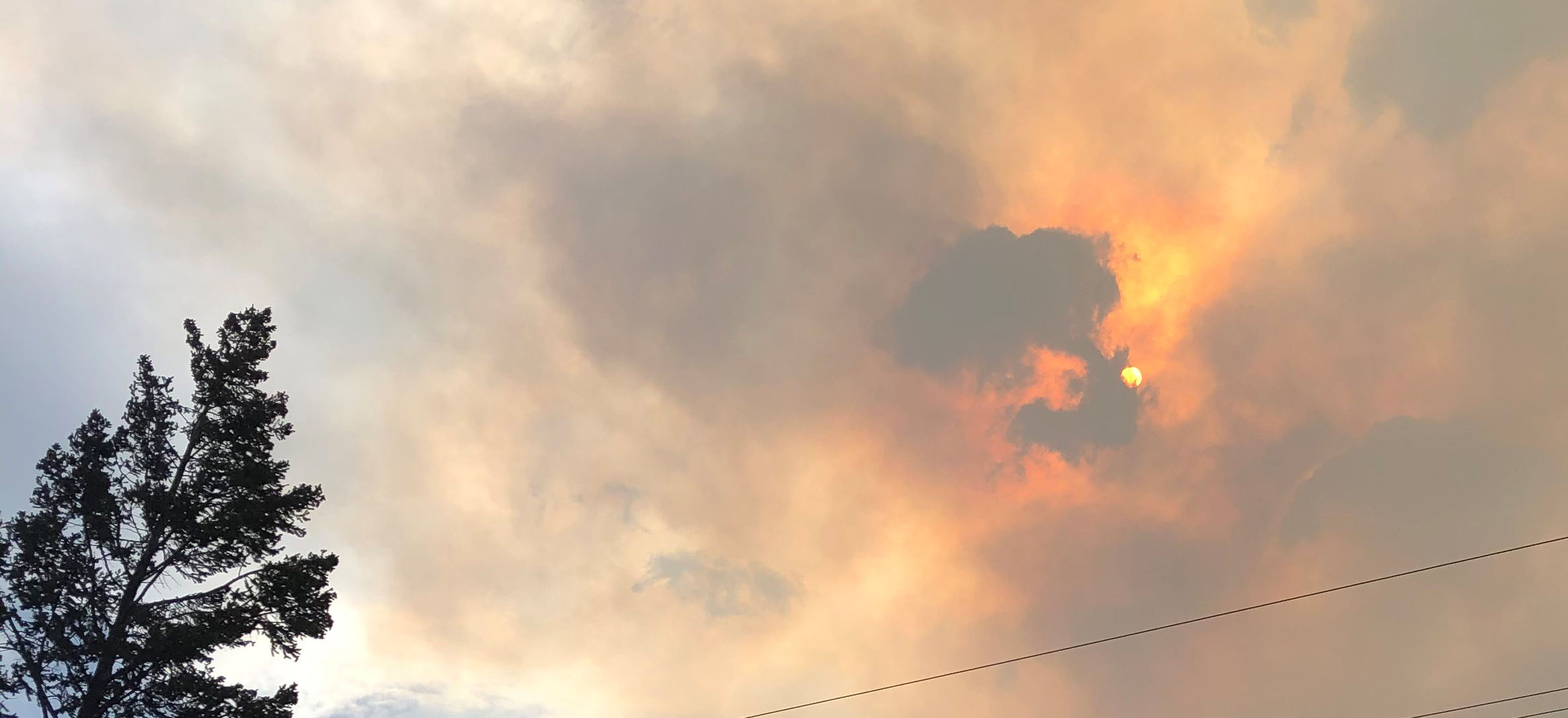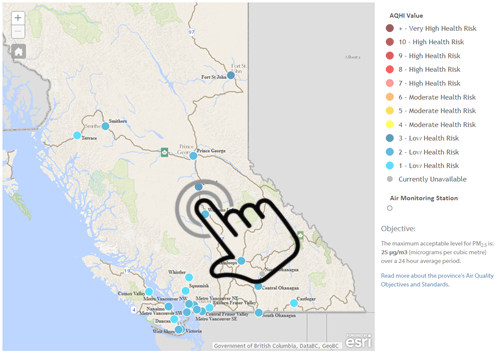Air
Air quality has a direct impact on the health of humans and the environment. Learn how different emissions affect air quality, how B.C. measures and monitors air quality, and how we can make healthy air choices.
Pollution sources
Air pollution can have local and regional impacts, such as ground-level ozone and wood smoke. It can also have wide-reaching, global effects, such as climate change and depletion of the ozone layer. Air pollutants can be visible (for example, the brownish-yellow colour of smog) or invisible.
- Learn more about air pollution
- Is outdoor burning permitted today? View today's Ventilation Index
Air quality data
Good air quality refers to clean, clear, unpolluted air. Air quality assessment involves a number of components from across the province that provide up-to-date monitoring data that may affect health or the environment.
To learn more, visit:
- Air Quality Warnings
- Air quality data by air zone
- Air Quality Health Index across the province
Air quality management
Air quality management refers to all activities related to improving air quality, and protecting human health and the environment from the harmful effects of air pollution. These include:
- Establishing goals using air quality objectives and standards
- Conducting air quality assessments through dispersion modelling
Taking action to reduce air pollution improves the health of the province’s citizens, addresses the government’s air quality targets, preserves our environment and enhances our economic competitiveness.
To learn more, visit:
Reports and publications
This section provides a comprehensive listing of all digital air quality reports produced by the Province. Reports may be searched for by topic of interest or geographic region.
Air Quality Warnings
Visit FireSmoke Canada for up-to-date forecast information.
Air quality quick links
Subscribe to our email list to receive notifications when new information is posted on the B.C. Air Quality website and news relevant to air quality management.



